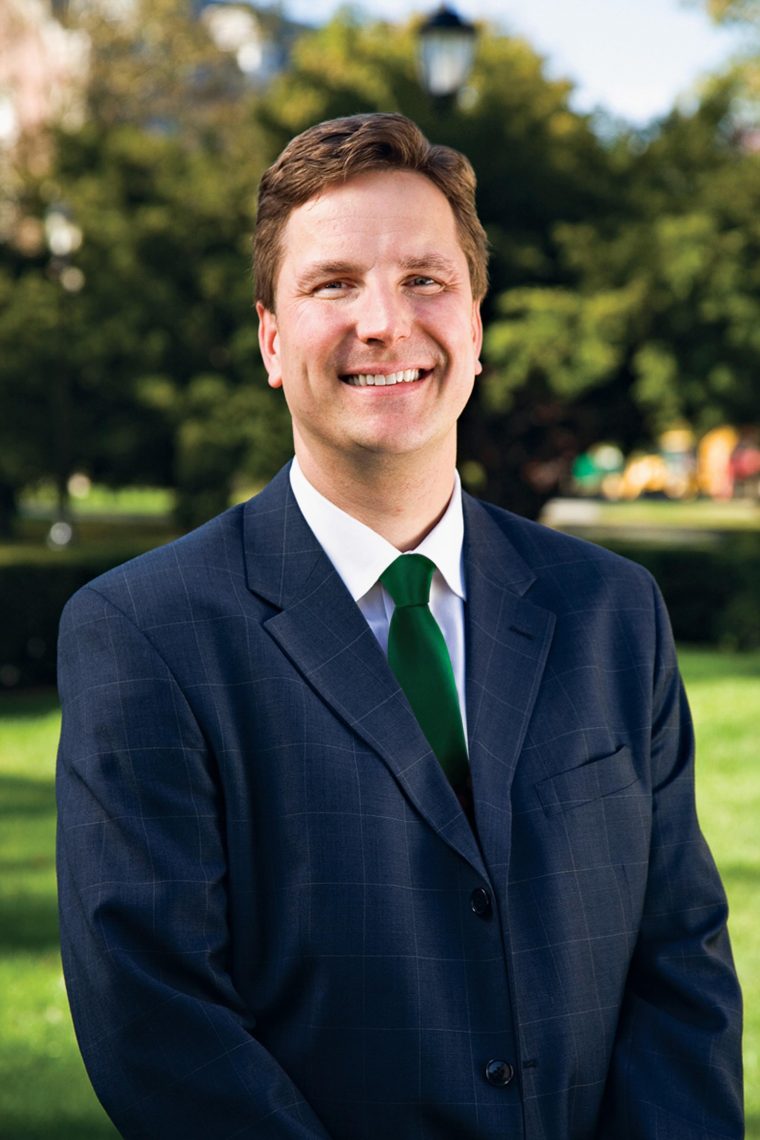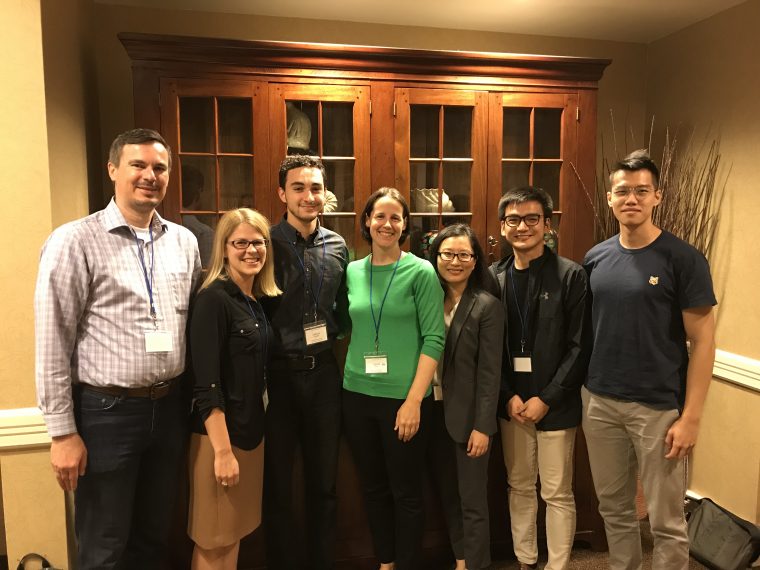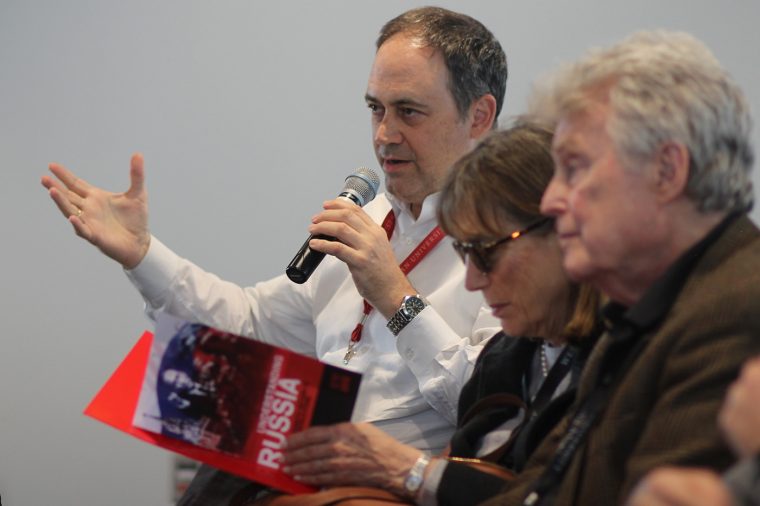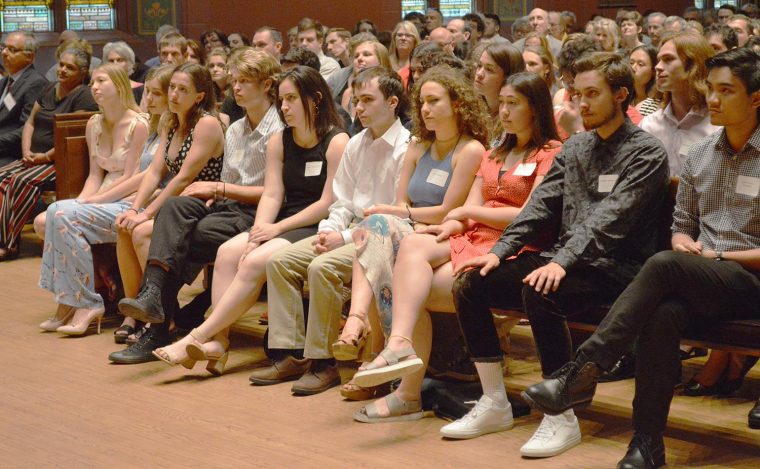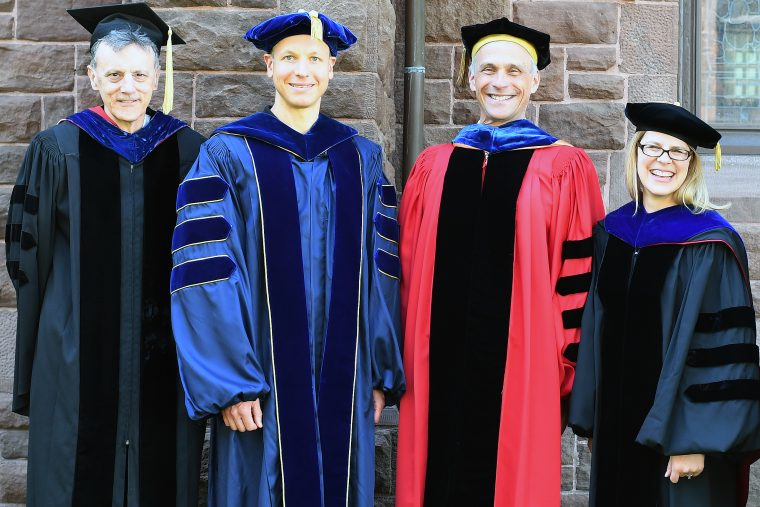Christopher F. Roellke ’87, PhD, has been named president of Stetson University, effective July 1, 2020. Currently dean of the college emeritus and professor of education at Vassar College, Roellke will be the 10th person to hold this position, succeeding Wendy B. Libby, PhD, who has served as Stetson's president since July 2009 and had announced her retirement last February. Roellke is also past president for the Association of Education Finance and Policy, a 2014 Fulbright Scholar, and the founder and fundraiser of Vassar College’s Urban Education Initiative. “The Board of Trustees has unanimously elected Dr. Roellke to lead Stetson…
As the 2020 presidential election season heats up, the Wesleyan Media Project (WMP) is providing important analysis on campaign advertising for researchers and the media alike. Over the summer, Associate Professor of Government Erika Franklin Fowler, co-director of WMP, worked with undergraduate students and others to accelerate the analysis of digital political advertising, which has seen enormous growth this year over previous cycles. In the early summer, WMP hosted a mini-hackathon to begin the process of analyzing political ads on Facebook. They worked with summer students through the Quantitative Analysis Center (QAC), and with Assistant Professor of Computer Science Saray…
Wesleyan faculty frequently publish articles based on their scholarship in The Conversation US, a nonprofit news organization with the tagline “Academic rigor, journalistic flair.” In this article, professor emeritus of government John Finn, a constitutional scholar, examines how anti-abortion and pro-gun "sanctuary" towns popping up across the country are challenging how we understand the power of federal law and its role in the states and the lives of Americans. Finn was also recently interviewed on KJZZ about sanctuary cities (he comes in around 5 minutes). Sanctuaries protecting gun rights and the unborn challenge the legitimacy and role of federal law In June…
Russia has returned to the world stage in dramatic fashion in recent years with military interventions and interference in elections. What is driving this aggressive behavior? Will the current political system survive the scheduled departure of its architect, Vladimir Putin, in 2024? How should the United States deal with Russia? On Oct. 11–12, Wesleyan alumni and faculty panelists tackled these questions and more during the 2019 Shasha Seminar for Human Concerns. This year's theme was "Understanding Russia: A Dramatic Return to the World Stage," with Peter Rutland, the Colin and Nancy Campbell Professor in Global Issues and Democratic Thought, serving…
In this recurring feature in The Wesleyan Connection, we highlight some of the latest news stories about Wesleyan and our alumni. Wesleyan in the News 1. The Nation: "Edward Snowden Deserves to Be Tried by a Jury of His Peers, Just Like Everyone Else" In this op-ed, Associate Professor of Government Sonali Chakravarti argues against the Justice Department's decision to deny Edward Snowden's request for a jury trial. She contends that in Snowden's case, in which he is accused of leaking classified information from the National Security Administration in 2013, a jury trial "is not only a viable alternative to a hearing…
In this recurring feature in The Wesleyan Connection, we highlight some of the latest news stories about Wesleyan and our alumni. Wesleyan in the News The Hill: "Analysis: 2020 Digital Spending Vastly Outpaces TV Ads" The Hill reports on a new analysis by the Wesleyan Media Project, which finds that 2020 presidential hopefuls have spent nearly six times more money on Facebook and Google advertising than on TV ads. President Donald Trump and the Republican National Committee lead the way in digital advertising, having spent nearly $16 million so far. All told, Facebook and Google have raked in over $60 million…
In this recurring feature in The Wesleyan Connection, we highlight some of the latest news stories about Wesleyan and our alumni. Wesleyan in the News 1. Where We Live: "The Life and Legacy of American Composer Charles Ives" Neely Bruce, the John Spencer Camp Professor of Music, is a guest on this show about the legacy of composer Charles Ives. Bruce is the only pianist who has ever played all of the Ives music for solo voice, in a project called the Ives Vocal Marathon, which took place at Wesleyan in 2009. He is also the co-editor of a new collection…
This year's Shasha Seminar for Human Concerns, “Understanding Russia: A Dramatic Return to the World Stage,” will be held Oct. 11–12. It begins on Friday with a keynote address by Andrew Meier ’85, a former Moscow correspondent with Time. On Saturday, a full day of panel discussions led by Wesleyan professors and alumni who are leaders in their field will be available to registrants. The Shasha Seminar, an educational forum for Wesleyan alumni, parents, and friends, explores issues of global concern in a small seminar environment. Endowed by James Shasha ’50, P’82, the Shasha Seminar for Human Concerns supports lifelong learning and encourages…
Wesleyan faculty frequently publish articles based on their scholarship in The Conversation US, a nonprofit news organization with the tagline, “Academic rigor, journalistic flair.” In a new article, Assistant Professor of Government Ioana Emy Matesan and Ronit Berger of Interdisciplinary Center Herzliya write about their research trying to understand when and why armed groups apologize for their mistakes. They hope this research will help to find ways to negotiate resolutions during conflicts. Why Do Rebel Groups Apologize? Armed groups often rely on violence and instilling fear to show strength and resilience. And yet, every so often, they are willing to apologize when…
On May 25, members of the Class of 2019 were inducted into Wesleyan’s Gamma Chapter of Phi Beta Kappa Society, the oldest national scholastic honor society. The Wesleyan Gamma Chapter was organized in 1845 and is the ninth-oldest chapter in the country. To be elected, a student must first have been nominated by the department of his or her major. The student also must have demonstrated curricular breadth by having met the General Education Expectations and must have achieved a GPA of 93 and above. Phi Beta Kappa is the oldest surviving Greek letter society in America, founded in December…
In this recurring feature in The Wesleyan Connection, we highlight some of the latest news stories about Wesleyan and our alumni. Wesleyan in the News 1. The Morning Call: "Allen Student Wins 'Hamilton' Scholarship, Congrats from Lin-Manuel Miranda" Anna Tjeltveit of Allentown, Penn., winner of the 2019 Wesleyan University Hamilton Prize for Creativity, is profiled. She shares how her winning submission, a one-act play titled, "Five Steps," came together at the last minute, and discusses her early career in theater as well as her plans for her time at Wesleyan. 2. WJLA: "Arlington Teen Wins ‘Hamilton’ Prize Gets a Shout Out from Lin-Manuel Miranda" Cole…
Every year at Commencement, Wesleyan recognizes three outstanding teachers with Binswanger Prizes for Excellence in Teaching. These prizes, made possible by gifts from the family of the late Frank G. Binswanger Sr., Hon. ’85, underscore Wesleyan’s commitment to its scholar-teachers, who are responsible for the University’s distinctive approach to liberal arts education. Recommendations are solicited from alumni of the last 10 graduating classes, as well as current juniors, seniors, and graduate students. Recipients are chosen by a selection committee of faculty and members of the Alumni Association Executive Committee. This year, during the 187th Commencement ceremony, Wesleyan honored the following…


